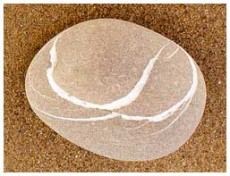
On a crisp fall afternoon with cloudless sky and crunchy leaves on the hard ground, I sat at my desk. This kind of weather has grown-ups stomping like kids on wooded paths making crinkly sounds through the foliage piles. Staying inside on a day like this is a recipe for depression, for feeling de-pressed, pressed down. Yet I clicked into a podcast by an author reading her essays “with prose so much better,” I told myself, “than I could ever compose.”
With scratchy tone, the inner critic (whom I’ve named Elphaba, after the Wizard of Oz’s Bad Witch) yelled at me, “You? Trying to write? A waste of time and energy!” Blah. Blah. Blah.
When the cynic moves in, that voice expands. “you can’t put words together, aren’t smart enough, skillful enough at (fill in the blank), cooking, crafting, serving the needy, stewarding the planet. No one loves you. You have no friends.”
When Elphaba inflates, she drones on and on. Her cackle seems bigger than us, bolder, stronger. Sometimes friends cheer us, if they say something like, “You do that too? I have no idea how to help, but I’m with ya.”
Yet the secret screeching and stabbing persists. As a professional who listened to those whose wicked witches often screamed louder than mine, I know lots of prescriptions to counteract this cruelty.
We can imagine hurtful chatter as a radio channel and turn the volume down, then turn up a channel that sounds more nourishing, safe and kind, more like those who have loved us. Channel them.
Or we can form a frame around the faultfinders, draw a boundary around the mean ones, circle lines around “you’re no good, never have been, never will be.” We can move that frame far away and watch the picture get smaller and more distant as it approaches the horizon. Next download a new image in our head, compassionate, more like Glinda the Good Witch.
Some people practice forms of “shhhhh,” like: “Shush. Quiet;” “Go away;” “Out. Out.”
Or, we could invite the criticizers to tea. See what they have to teach. Sit down with the judgers, the judgments. Lean in and listen. Learn what the critics want.
For many of us, though, mental maneuvers fail because, as Einstein said, “You can’t solve a problem with the same mind that created it.”
Thoughts alone won’t solve the inner critic problem. Beaten down by Elphaba, as I listened to and came up short against the wonderful writer, I stared out the window at autumn and remembered the words of Poet Wallace Stevens, “Perhaps the truth depends on a walk around the lake.”
Feeling down, I got up, left the podcast and marched into my community.
Without needing to kill a witch, or meet our toughest selves directly, we could take our darkness on a walk: around a lake; at the beach; or spend moments outside with the season’s waning light. Without trying to banish thoughts, we could feel the woods, trees, coast. We could chat with neighbors. We could inhale the wind as it brushes the skin, smell the mud, touch bark, raise our eyes to the tops of trees, hear what rustles underfoot. Our exhale could let go of the untruth of not-good-enough.
With a dose of outdoor medicine, we don’t try to hush the critic. Rather we bask in nature. Then the de-pressed person who stepped outside becomes no-longer-pressed-down. We step inside, lifted, without the rude inner roommate who disappeared on our walk. Problem solved.
.


